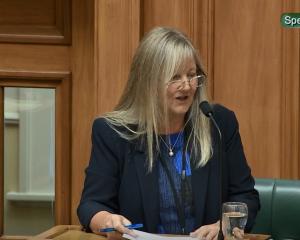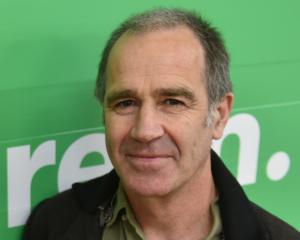
The Government last night hauled in the relevant country's head of mission to make its views clear that the diplomat, who cannot be named, should be held to account.
It was revealed yesterday that the man, aged in his 30s, fled the country a day after being charged with burglary and assault with intent to rape by Wellington police.
He had followed a 21-year-old woman to her home in Brooklyn on May 9, when the alleged assault occurred.
Mr Key said the Ministry for Foreign Affairs had formally asked for the diplomat's home country to waive diplomatic immunity, but it had declined.
"New Zealand's very strong preference was that he would have been charged. Effectively that sending country stopped us from doing that," he told reporters.
Under the Vienna Convention, diplomats could claim immunity to avoid arrest and detention.
The Government made a show of hauling in the diplomat's head of mission to the Ministry of Foreign Affairs last night "to make it clear how seriously it views this situation".
But the ability for the Government to publicly sanction the country was limited because the Wellington District Court made an order to suppress the diplomat's identity and other details.
The Herald is challenging the court suppression order.
Mr Key said that as a signatory to the Vienna Convention, "our hands are effectively tied". But he expected the man's home country to investigate the charges.
The Government had been advised that the diplomat could still be charged for a crime committed in New Zealand, and that the offence was taken as seriously in that country.
Mr Key would not say what action could be taken if the investigation did not hold the diplomat to account.
He was also asked why the case was not made public sooner, and if the head of mission would have been called in if the Herald on Sunday had not publicised it.
He said a series of meetings had taken place at a senior level over the past month, and the home country was aware of New Zealand's expectations.
Green Party foreign affairs spokesman Kennedy Graham said the convention's rules on diplomatic immunity were not fit for the 21st century.
Police said the charges remained active and a warrant had been issued for the diplomat's arrest.
Foreign diplomats in New Zealand have claimed immunity a number of times:
* 2000: Mario Fierro, the partner of an Australia diplomat, was found guilty of assault after he stabbed a man in a Wellington restaurant. Immunity was waived by the Australian Foreign Minister.
* 1997: Former Colombian Ambassador Hernando Harjuch was alleged to have sexually assaulted an 18-year-old Lower Hutt woman while she was attending a local cinema. He had diplomatic immunity and was not prosecuted, though he later resigned from his position.
* 1984: Chilean Ambassador Luis Lopez crashed his car after drinking, killing 20-year-old Sacha Macfarlane. He claimed diplomatic immunity and was not prosecuted. Chile apologised for the incident in 2010.
- Isaac Davison of NZ Herald












